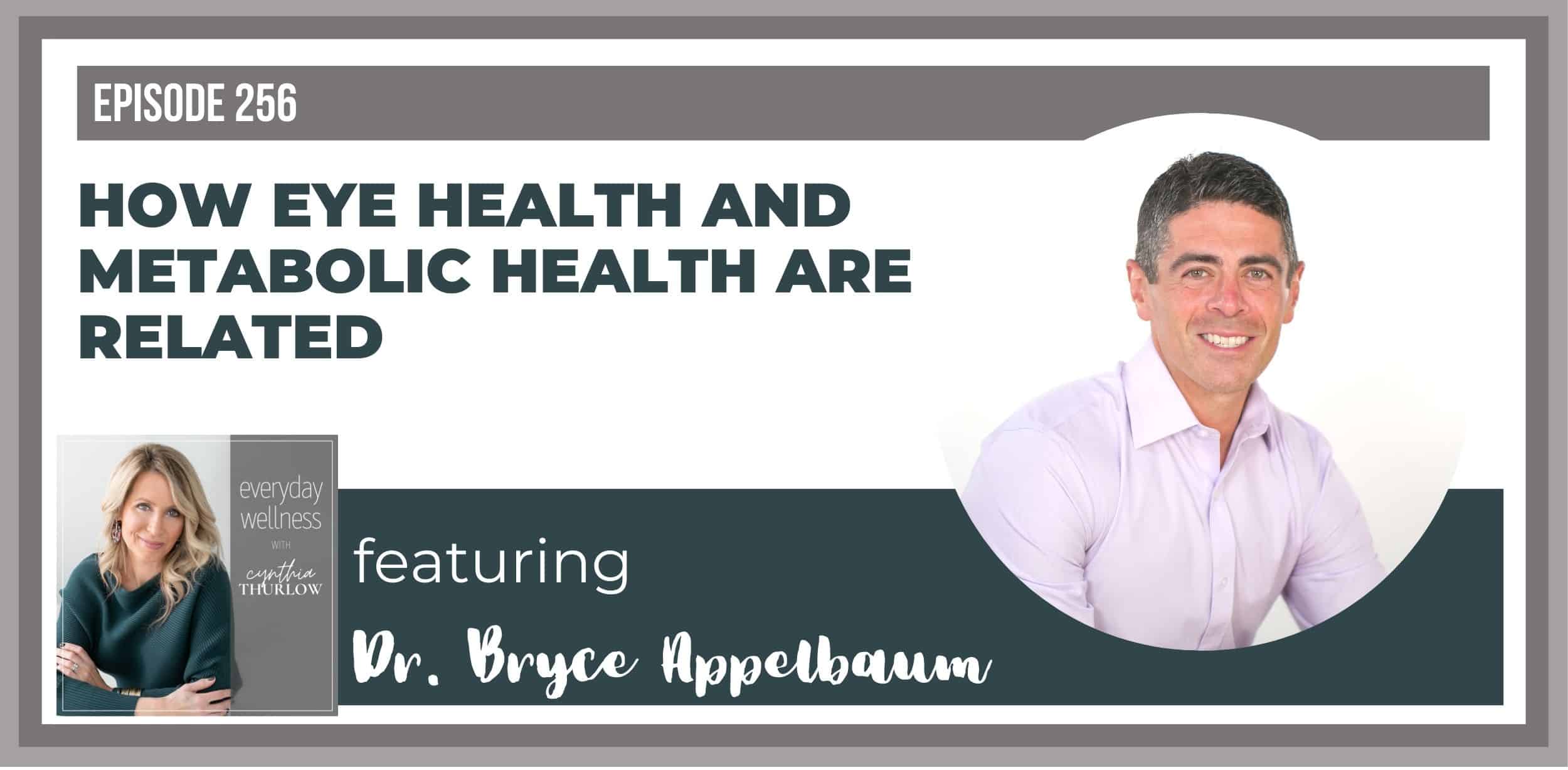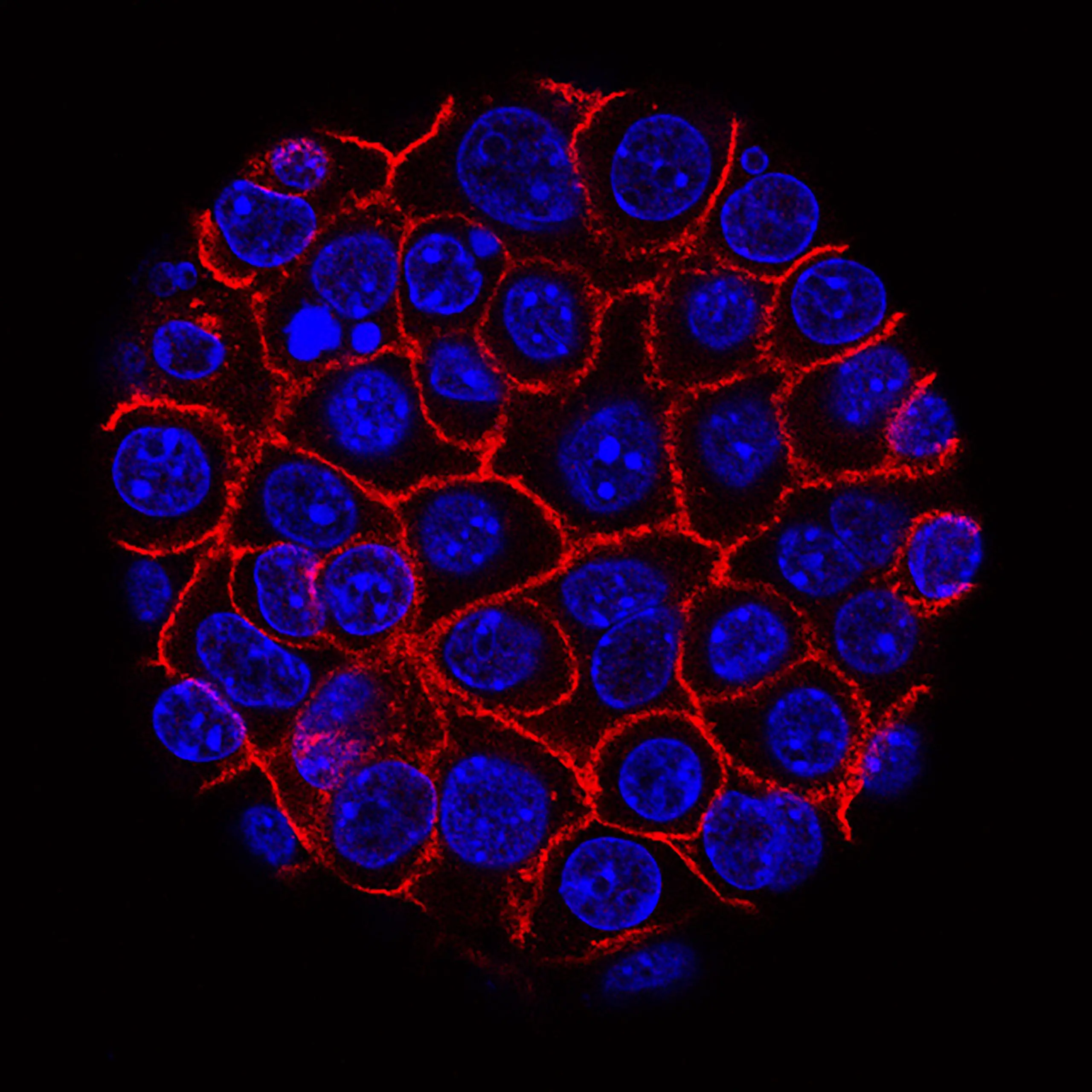Summary of Ep. 256 How Eye Health and Metabolic Health Are Related with Dr. Bryce Appelbaum:
I feel like I’m living my purpose. Cynthia Thurlow: Absolutely. That’s a beautiful story. So, let’s talk about vision and sight. What’s the difference between the two? Bryce Appelbaum: That’s a great question. So, sight is what we measure with the eye chart. It’s the ability to identify letters and numbers on the eye chart, and vision is the ability to take that information and use it to drive behavior. So, vision is the ability to take in information, process it, and use it to make decisions and drive behavior. And so, when we look at vision, we’re looking at this complex interrelationship between the eyes and the brain. Our brain uses 48-50% of its physiology just for us to be able to see. And so, it’s really about how well can the eyes and the brain work together to drive behavior. Cynthia Thurlow: That’s amazing. So, when you’re looking at eye problems, it’s really about the brain and the processing? Bryce Appelbaum: Absolutely. It’s about the brain, it’s about the processing, it’s about nutrition, it’s about the environment, it’s about the chronobiology, the connection to sunlight and how that affects the development of the eyes. It’s about how well the eyes and the brain are working together. It’s about how well the eyes are working as a team and how well the eyes can take in information and use it to drive behavior. So, it’s really a complex interrelationship between the eyes and the brain. Cynthia Thurlow: Absolutely. So, let’s talk about nutrition. What role does nutrition play in eye health? Bryce Appelbaum: Nutrition plays a huge role in eye health. We know that certain vitamins and minerals are important for eye health, like lutein and zeaxanthin, omega-3 fatty acids, zinc, and vitamins A, C, and E. Eating a healthy diet full of fruits, vegetables, and lean protein can help to ensure that we’re getting all of the nutrients that we need to support our eye health. Additionally, avoiding processed foods and limiting sugar intake can help to keep our eyes healthy. Dr. Bryce Appelbaum is a pioneer in neuro-optometry passionate about unlocking life’s potential through vision. He is the owner and managing doctor at Appelbaum Vision, PC, a private practice specializing in Vision Therapy and Rehabilitation with offices in Bethesda and Annapolis, Maryland. He has worked with hundreds of professional athletes, numerous professional and collegiate sports teams, and countless amateur athletes to transform raw talent into honed performance through vision. He helps teams consider who to draft or sign as a free agent based on assessing a player’s visual potential and identifying how far off they may be from operating at that ceiling. He also helps people with visual developmental delays, traumatic brain injuries, and environmental near-sightedness. He has developed programs to retrain the brain to revise the eyes and believes there is more to vision than just 20/20 eyesight.
*****


